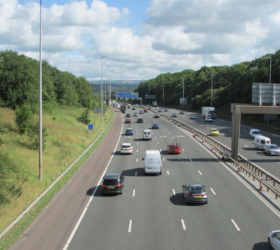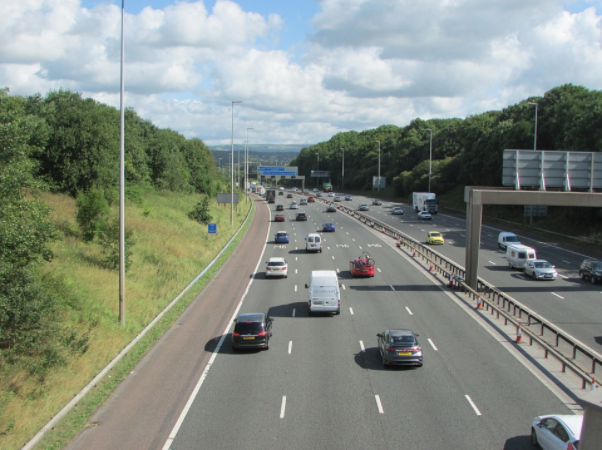It’s no secret that Britain is on a mission to significantly lower greenhouse gas emissions. The government last year brought legislation into force that aims to bring the UK to net-zero carbon emissions by 2050.
With that in mind, they’ve been coming up with ways to make that goal realistic to achieve. The most recent example comes from an innovative trial set up by Highways England to give businesses a “try before you buy” incentive on electric vans.
Highways England is hoping their latest green scheme will get more transport and freight companies on board with EV technology. Around £9.3 million is being made available to local authorities across the country to encourage firms to switch from diesel vans.
Positive results following pilot trial
Eligible businesses across England can enjoy a two-month free trial of an electric van before committing to any permanent fleet changes. Each firm will also get specialist advice from their local authority on the changes and cost savings made with their EV trial van.
Back in January 2020, Highways England decided to spark interest in the idea of businesses switching over to electric vans in their fleets. They did this by launching a pilot scheme in conjunction with the Energy Saving Trust and Leeds City Council.
So far, five other local authorities in England have set up similar schemes. The most recent is Bristol City Council, who were awarded over £3 million of funding from the scheme.
The trial is also set to create over 6,000 new jobs in the industry, according to Transport Secretary Grant Shapps.
Making the move to electric vans
For most businesses operating fleets of vehicles, including transport and haulage companies, they will typically opt for diesel vans for sale. After all: they are in abundance throughout the UK, and it’s what most companies have been using for decades.
But with the government’s ambitious goals to create a zero-emissions nation, how realistic is the idea of electric vans?
At present, there are 18 different electric van models on the market. They range from the smaller Citroen Berlingo Electric through to long wheelbase models such as the Mercedes-Benz eSprinter.
The models currently on the market have a range of 106 miles through to 224 miles. Range anxiety also isn’t necessarily an issue these days thanks to a network of over 12,486 charging stations.
Many electric vans can also get a full charge from empty in just over two hours thanks to AC quick-chargers. Some models, such as the Citroen e-Dispatch, offer a rapid charge facility where 80% of charge gets delivered in just 30 minutes.
Of course, the crux of the subject is cost. How much is an electric van likely to set back fleet operators? It’s likely lease prices will be a bit higher than conventional diesel vans. But, the fuel and maintenance savings tend to offset those higher lease costs.
Finally, businesses looking to buy EV vans outright must invest a minimum of £15,000 for a small van such as the electric Citroen Berlingo and Peugeot Partner. Larger vans like the Renault Master ZE cost just over £57,000.
It’s likely the government will introduce more grants and discount schemes in time to entice businesses to ditch diesel vans and go greener with electric ones.


.gif?rand=8335)










